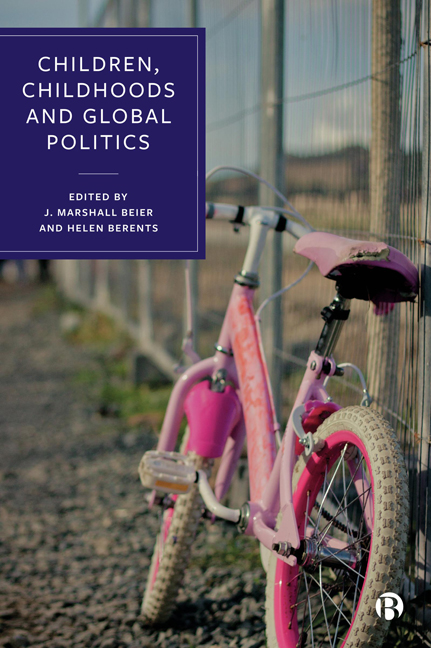4 - (Un)Recognition of Child Soldiers’ Agency in UN Peacekeeping Practice
Published online by Cambridge University Press: 03 April 2024
Summary
Introduction
Peace support operations of various kinds implemented by the United Nations or other national, regional, and international actors are key forms of intervention and order making in global politics: they are some of the largest foreign deployments of military forces, are mandated to address a complex range of political problems, and are reasonably effective at reducing violence, ending civil wars, and preventing conflict recurrence (Walter et al, 2021). Since the end of the 1990s, protection has become a central focus of many peacekeeping missions, with an emphasis on the protection of civilians, the protection of children from grave violations of their rights, and the protection of women from sexual violence (Kullenberg, 2020). Children make up a substantial portion of the population of states hosting peacekeeping missions, and violations of children’s rights, particularly their recruitment and use as soldiers, are considered to be particularly grave. Consequently, peace support operations provide a fruitful site for investigating how a universalized conception of childhood helps to sustain certain forms of global politics and is reproduced in doing so. International discourses on child protection primarily construct children as universally innocent, vulnerable, and dependent on adults and the state, in need of protection so that they can mature into responsible adult citizens. Deviations from this form of childhood, such as child soldiering, threaten this progression and necessitate intervention (Tabak, 2020). However, this construction of childhood does not align with children’s own experiences of the specificity of their circumstances and their exercise of agency (Denov, 2012; Drumbl, 2012). Children play a range of active, political roles during armed conflict which should be considered in research on peacekeeping (Jacob, 2015).
Consequently, in this chapter, I focus on the practices of peacekeepers involved in child protection to examine both how this universal conception of childhood influences and is contradicted by peacekeeping practice, and how children actively navigate the social environment of war in ways that peacekeepers have to account for. I do so through analysing practice-oriented documents from the UN, such as training materials and manuals, and interviews with military, police, and civilian peacekeepers with experience in a range of child protection functions in several UN missions. This analysis both demonstrates one site where children play an active role in the global political world and illustrates how universalizing discourses like those on children are disrupted and contested in practice. Despite the dominance of discourses of children’s lack of agency during war, child soldiering and the UN’s response to it shows one way in which powerful global actors understand and implicitly acknowledge children as political actors.
- Type
- Chapter
- Information
- Children, Childhoods, and Global Politics , pp. 58 - 70Publisher: Bristol University PressPrint publication year: 2023



